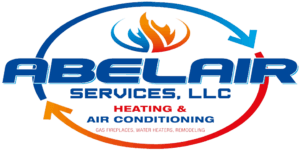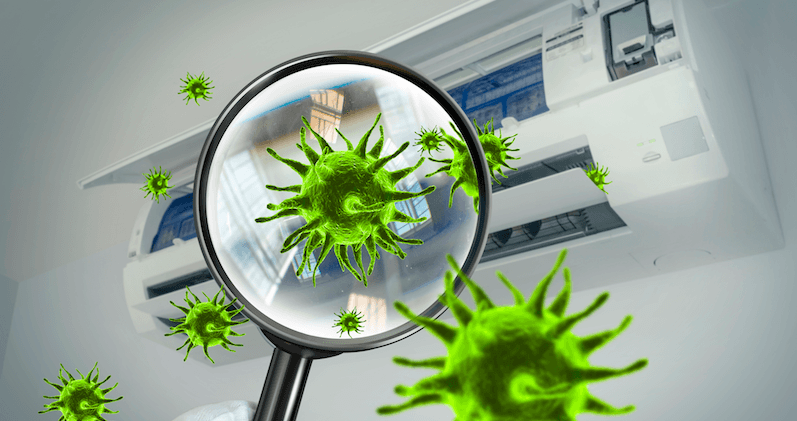How To Use Your HVAC To Combat Covid
Like most of us, when you first learned about the threat of a deadly coronavirus (specifically, COVID-19), you were probably caught off guard and scrambled to go on the defensive with social distancing and face masks.
However, there are some proactive steps that you can also take against this illness. We’re going to tell you how you can use your Virginia home’s HVAC to lower your risk of becoming infected—starting with a recent news story that can provide a valuable lesson.
The American Society of Heating, Refrigerating, and Air-Conditioning Engineers (ASHRAE) is focusing on the role of indoor air quality after studying a report about the spread of the infection at a restaurant in Guangzhou, China.
Three families seated at two tables contracted COVID-19 from a diner at a third table. The medical researchers speculated that the restaurant’s air conditioning helped spread the infected woman’s mouth and nasal droplets.
Later, independent infectious disease experts questioned whether the air conditioning played a role. Their data from other restaurants and other businesses didn’t point to air conditioning playing a critical role in the spread of the illness.
That’s when the ASHRAE reviewed the report. It also established a pandemic task force chaired by Pennsylvania State University’s William P. Bahnfleth, a professor of engineering.
According to Bahnfleth, there’s good reason to believe that the air conditioning did play a part in the Guangzhou infection. For starters, the restaurant had no windows. Also, none of the exhaust fans were operational.
In other words, the establishment did not have a steady supply of outside air. Bahnfleth concludes that a properly functioning air conditioner with quality filters and proper ventilation could have reduced the concentration of the airborne virus droplets.
And it’s the concentration of the droplets that determines the likelihood of someone becoming infected. That’s why, in normal circumstances, it’s easier to contract the illness while conversing indoors with a carrier of the disease than interacting outdoors with the same person.
Let’s look at the three things that Professor Bahnfleth mentioned that could have made the restaurant situation less risky:
- A properly functioning air conditioner
- Air filters
- Ventilation
Make Sure That Your Air Conditioner is Functioning Properly
Schedule an inspection of your HVAC as soon as possible. Regular maintenance is the key to reducing the chances that your system will fail to operate during the remainder of this pandemic.
A qualified HVAC Abel Air Services technician can investigate any suspicious noises or odors coming from your unit. That odd rattle or unusual smell could be the warning signal of a potentially more significant problem.
Change Your Filters Regularly
The filter is the most accessible component of a home air conditioning system for a homeowner to replace, but homeowners often overlook it.
Failing to replace your AC filters regularly can cause the system to work harder, which shortens the lifespan of the unit’s various parts. Also, a clogged air filter can’t perform its job of keeping your air clean. As a result, more dust and pollen can circulate.
When nasal irritants flow freely through your house, you and your loved ones are more likely to cough and sneeze. Coughing and sneezing are two of the primary activities that spread COVID-19.
For more protection, ask our technicians about adding an in-duct air purifier, also called an air cleaner, to your HVAC system. It’s capable of trapping smaller particles of pollutants than your typical air filter can capture.
Give Your Home Good Ventilation
The simple, low-tech way to lower the possible concentration of COVID-19 air droplets inside your home is by getting in the daily habit of opening a few windows. Of course, it’s best to open the windows when the temperature is mild and the pollen count is low. You’ll be surprised at the difference that opening a window for a portion of the day will have on your overall indoor air quality.
If opening your windows is not a workable solution for you, consider installing an energy recovery ventilator. This special ventilator pulls fresh air from outside your home and introduces it to your HVAC.
But first, the ventilator filters the air and then raises or lowers its temperature to match the air already inside your home. The result is a steady supply of fresh air without a compromise to your comfort.
All Virginia homeowners should consider the precautions mentioned above to help ward off infection during this pandemic.
If you want to use your HVAC to combat the spread of COVID-19, give Abel Air Services a call today.
Let’s discuss what we can do together to keep your family safe.


